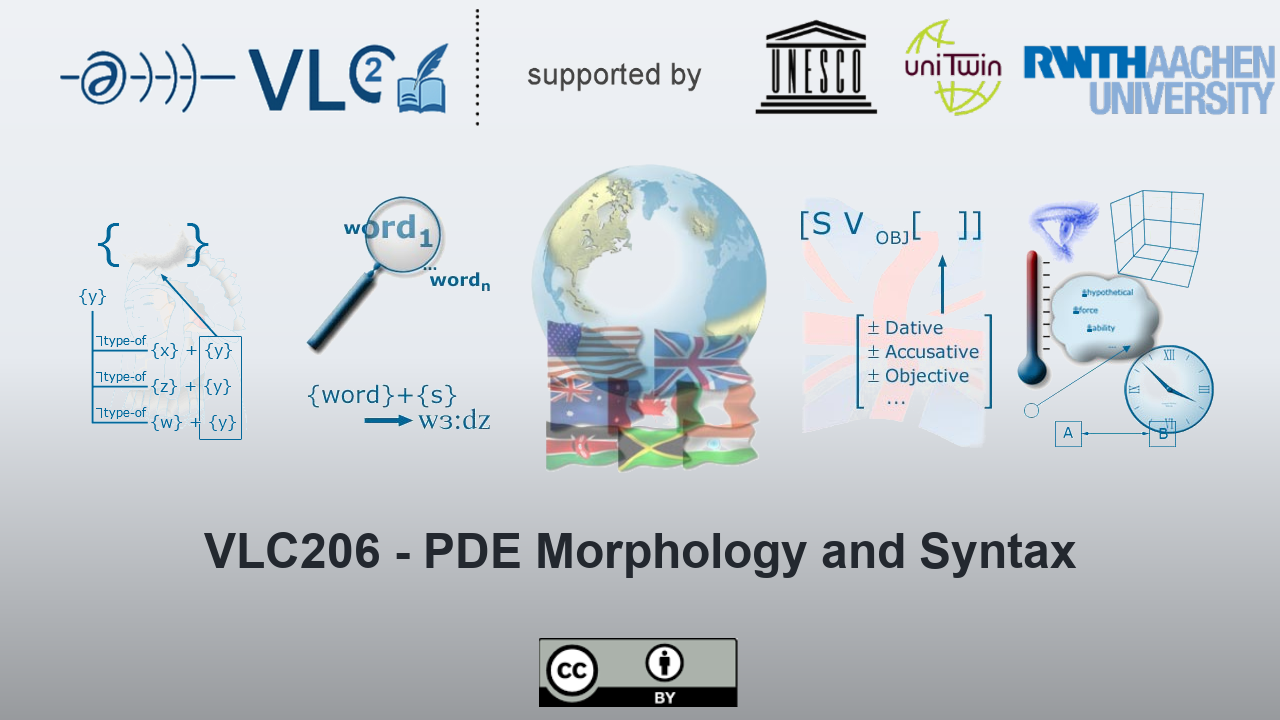This repository/course is intended to familiarize the participants with the main structural properties of PDE (Present-Day English) grammar. It starts with a review of linguistic approaches to grammar and then discusses the central grammatical aspects of PDE sentence structure: syntactic categories and syntactic functions. A unit on PDE orthography concludes the course. Thus, it is the class for everyone who is involved in teaching or studying English in one way or another.
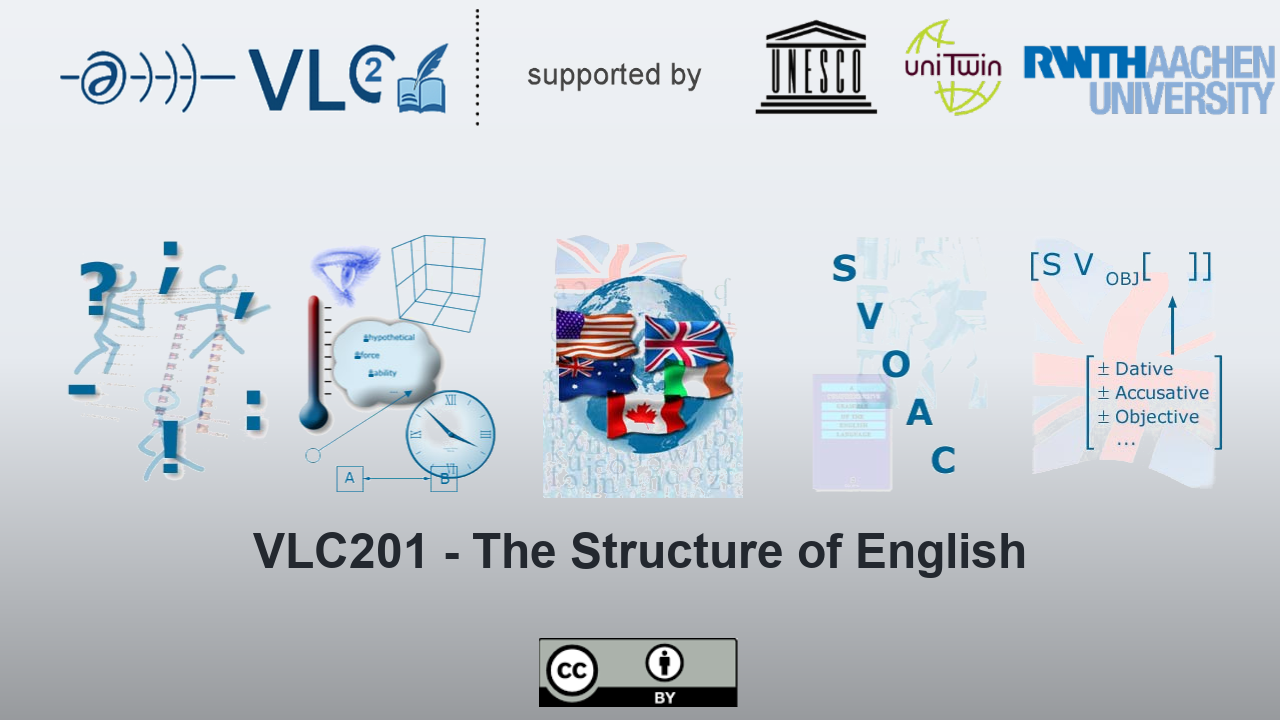
This repository/course covers the history of the English language from its remote Indo-European origins (and even before) to the present day.
It provides substantial information about the English language at different periods and introduces the main theoretical and technical concepts of historical linguistics, taking into account recent work in historical and general linguistics. To satisfy the needs of the current secondary school curriculum in many countries, its main focus, however, is Early Modern English.
Special emphasis will be put on practical aspects, such as, reading and the analysis of texts taken from different periods of English.
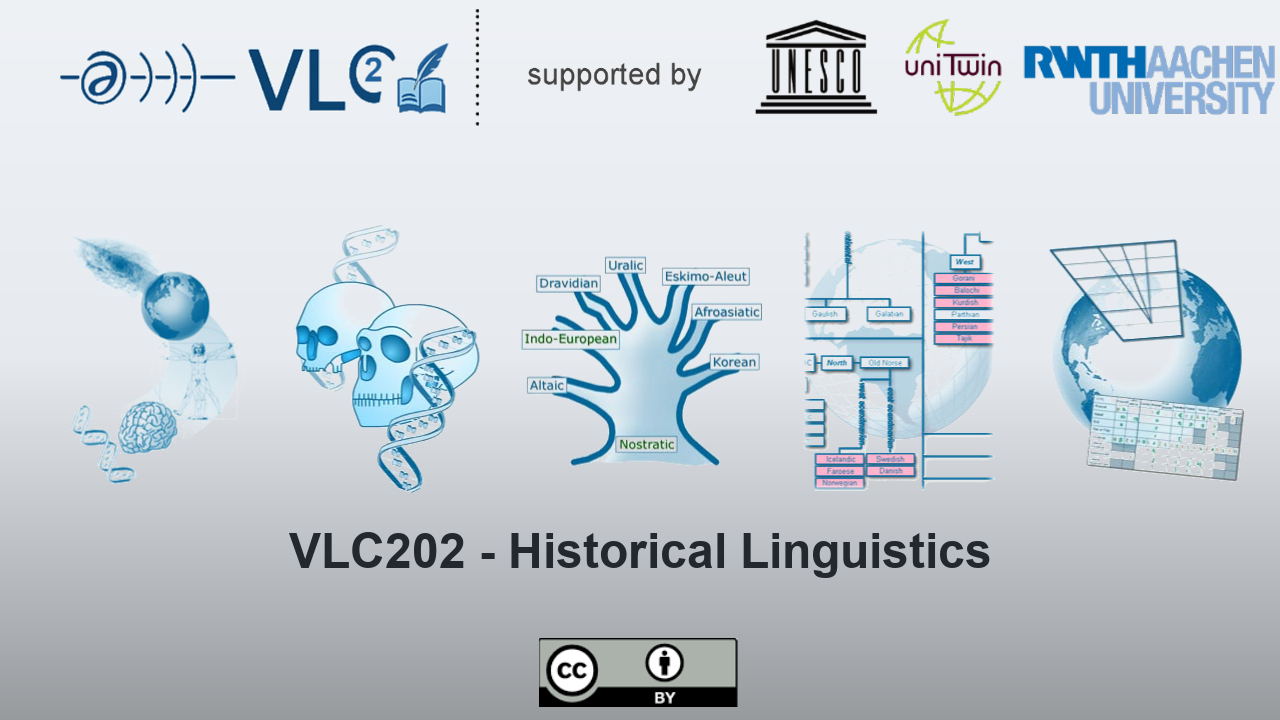
This repository/course covers the history of the English language from its remote Indo-European origins (and even before) to the present day.
It provides substantial information about the English language at different periods and applies the main theoretical and technical concepts of historical linguistics, taking into account recent work in historical and general linguistics. To satisfy the needs of the current secondary school curriculum in many countries, its main focus, however, is Early Modern English. In order to successfully apply the main concepts of historical linguistics it is recommended to work through the VLC202 repository "Historical Linguistics" beforehand or in parallel with VLC203.
Special emphasis will be put on practical aspects, such as, reading and the analysis of texts taken from different periods of English.
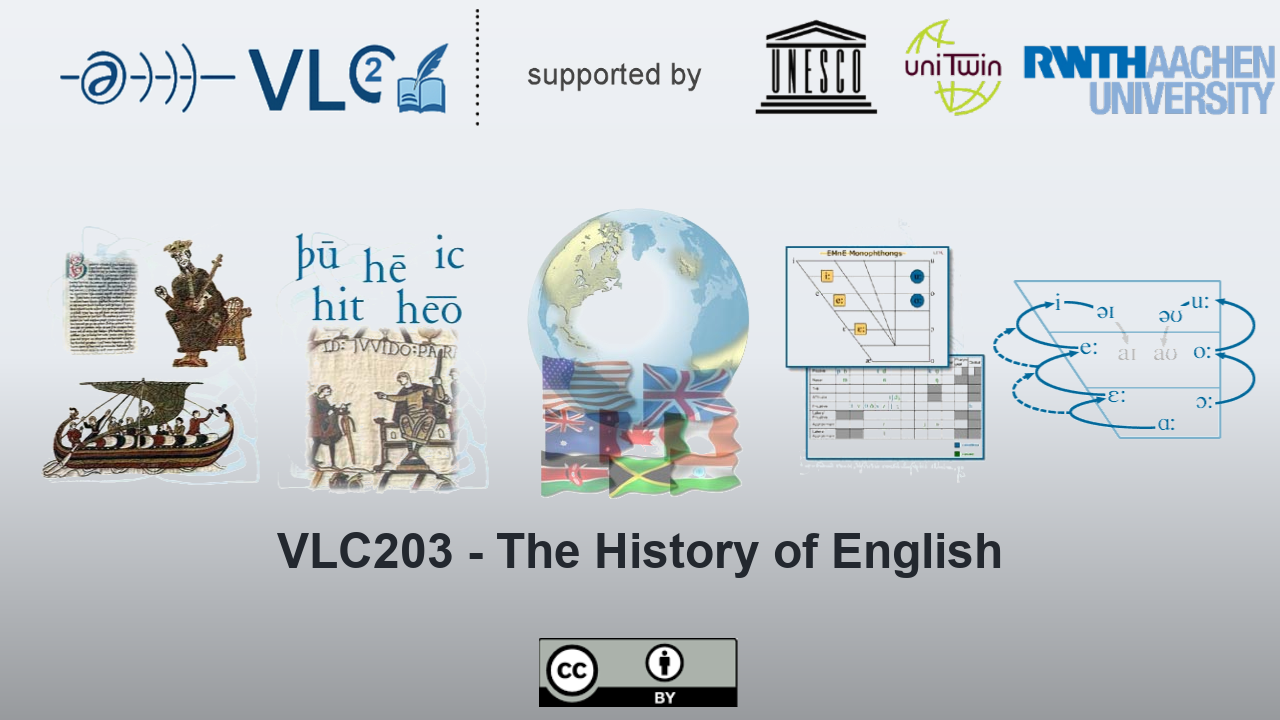
This course/repository is meant to repeat the major concepts within linguistics with special emphasis on English. All units consists of two parts:
- a theoretical introduction
- a multitude of authentic data ready for analysis
Students are expected to study on their own. The theoretical foundations should be self-explanatory, the material to be analyzed is supported by sample solutions with numerous hints and explanations.
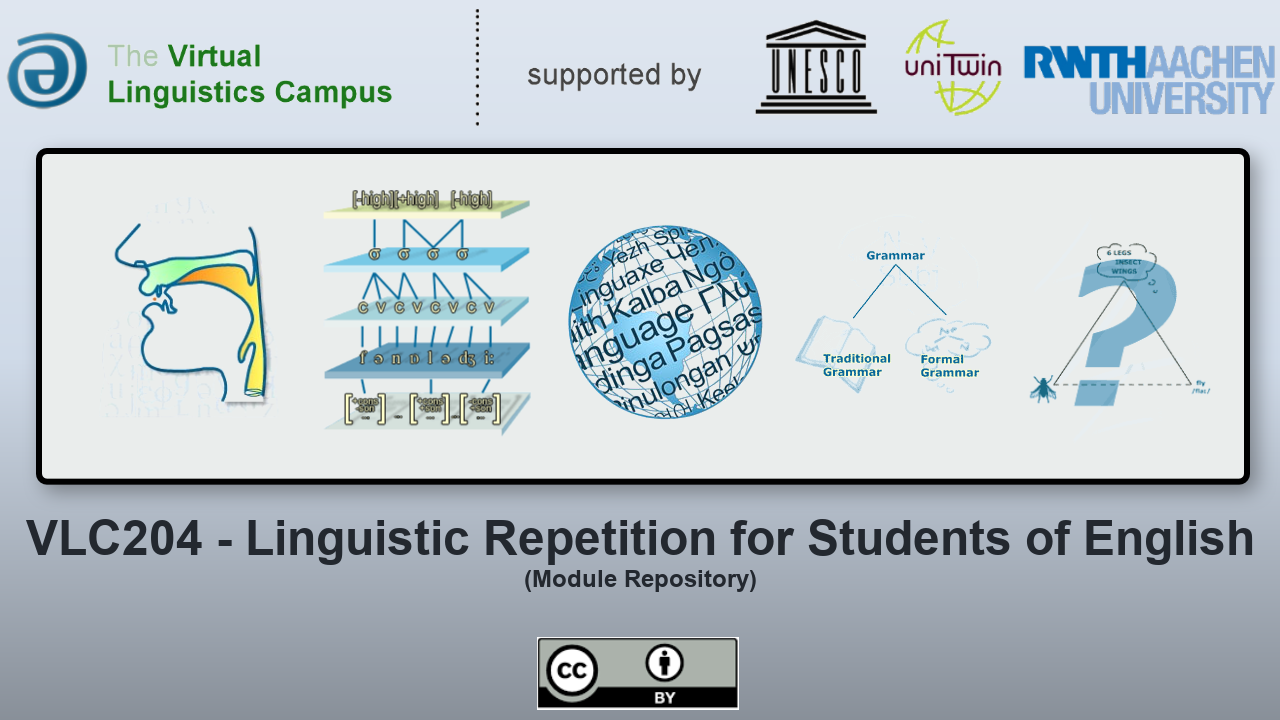
This course/repository is based on recent studies into dialectal variation of PDE, in particular on two recently finished projects: William Labov's Atlas of North American English and the Mouton de Gruyter publication 'Varieties of English'.
The class involves the discussion of:
- Vowel Systems across the varieties of English
- Transcription Systems
- Principles of Sound Change
- Morpho-Syntactic Variation in PDE
- PDE Pidgins and Creoles
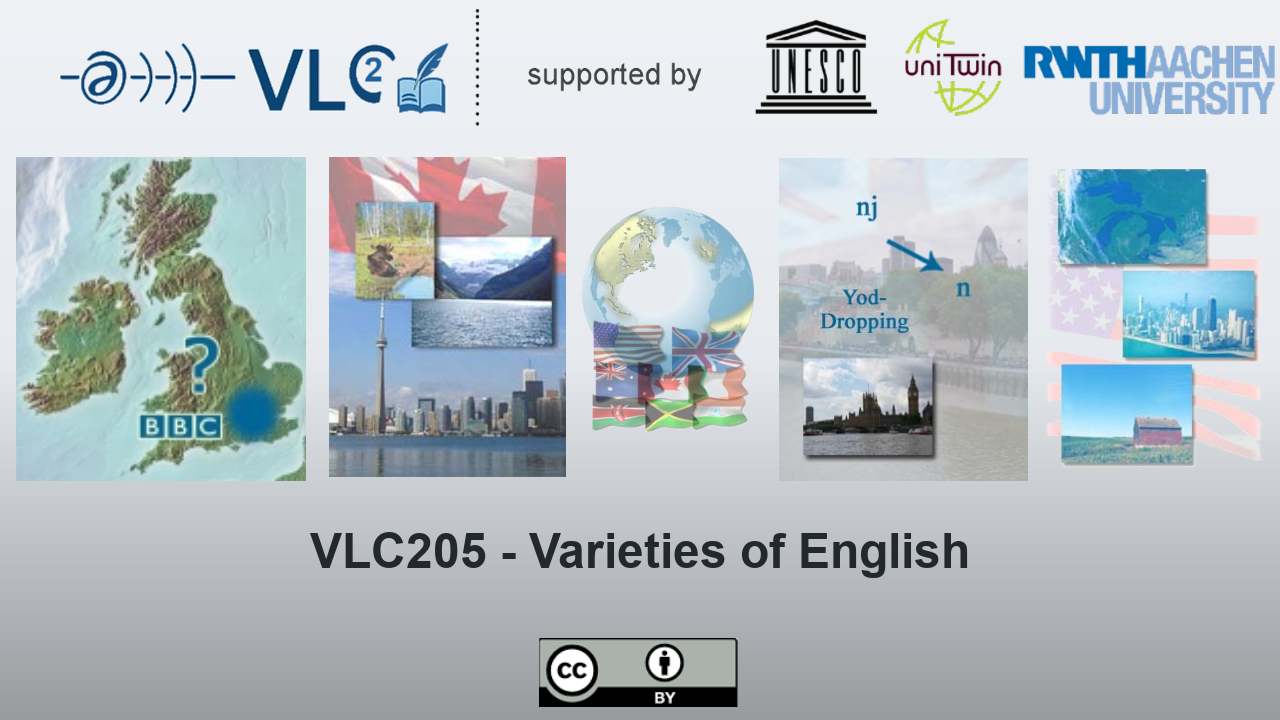
VLC206 deals with selected aspects of Present-Day English (PDE) grammar, i.e. morphology and syntax. It is subdivided into two parts. The goal of the first part is to introduce the basic morphological concepts that are used to describe and explain the internal structure of words in PDE. Why can we say book-sell-er-s but not *sell-s-er-book? Why is a pancake "a cake made in a pan" but not "a pan with a cake"!? And if we analyze laughed as {laugh}+{ed} what about went? The second part emphasizes all those aspects of English grammar where English is different from other languages, e.g. the formal and functional properties of English verbs, subject and object selection, clause internal and external operations.
